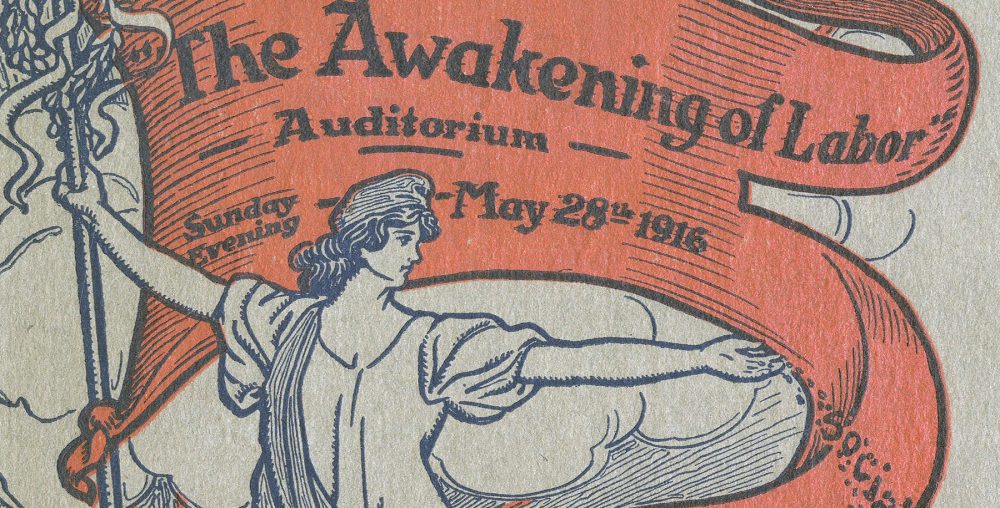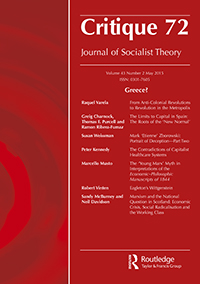 Neil Davidson argues that Scottish independence and separation would weaken British imperialism. For Davidson, loss of nuclear weapons that might occur if they were no longer allowed to be sited in Scotland, might mean, for example, that (1) its permanent seat at the UN Security Council might go to India (also armed with nuclear weapons); (2) might weaken its usefulness to US imperialism and (3) presumably weaken the ideological hold of imperialist (i.e. nationalist) ideas on British workers.
Neil Davidson argues that Scottish independence and separation would weaken British imperialism. For Davidson, loss of nuclear weapons that might occur if they were no longer allowed to be sited in Scotland, might mean, for example, that (1) its permanent seat at the UN Security Council might go to India (also armed with nuclear weapons); (2) might weaken its usefulness to US imperialism and (3) presumably weaken the ideological hold of imperialist (i.e. nationalist) ideas on British workers.
Let’s look at these in turn. Davidson refers to an excellent article in the ‘London Review of Books’ on the British experience in Afghanistan, which actually shows, not the usefulness of the British to the United States military but rather how bloody useless they really were, with overblown pretensions to ‘punch above their weight’ being demolished in the deserts of Helmand.
He fails to explain how replacing the declining imperialism of Britain with the rising capitalist power of India would be progressive, unless he thinks giving more legitimacy to the thieves’ kitchen that is the UN Security Council is some sort of advance. If removal from the Security Council would be a blow to the prestige of British imperialism and weaken its nationalist ideological hold over its people (approx. 63 million) does he not think that this might be balanced by an increase in the legitimacy of reactionary Indian nationalism and its reactionary ideological hold over a population of over 1.25 billion?
As pointed out before, British imperialism has been in decline for some time even with Scotland’s contribution, and will decline further with or without it: “The strength of British imperialism has already declined by much more than Scottish separation could possibly achieve. Has the prospect for socialism increased during this time? Has the strength of the working class increased as a result? The answer is no and rips apart this ‘non-nationalist’ argument for Scottish independence.”
Davidson advances a number of arguments I have taken up before but it would appear that this bogus ‘anti-imperialist’ argument, that really defends a nationalism that has been knee-deep in imperialist blood-letting, is one he comes back to.
Davidson makes it clear in this debate that there is a range of arguments that others on the Scottish left advance in backing independence that he cannot support, including “claims that the Scottish are more democratic or radical than the English”, which he describes as “nonsense”. This however is contradicted by his second major theme in support of independence, which is the supposed radically progressive character of the movement for independence, even though it’s pretty hard to ignore or deny its dominance by the right-wing SNP, a dominance rammed home after the referendum by the large numbers joining it. If Davidson were correct we would have seen large numbers of the SNP leaving it to join the left, not traffic the other way (as Sandy McBurney points out).
Davidson, no doubt drawing on his role as a historian, also describes as “idiotic” the view that Scottish national identity existed in the 13th century, at Bannockburn and declaration of Arbroath, and he similarly describes the idea that Scotland is oppressed as also “historical nonsense”.
In fact, it would appear that Davidson finds it hard to swallow much of the nationalist case but that in spitting some of it out he is left with not very much to chew on.
He responds to Sandy McBurney’s analysis of the SNP by saying that it “is assumed that if independence happens, it will be all about the SNP. But a yes vote on the basis of a mass, collective insurgency which is doing this for left-wing reasons would change the actual context in which the SNP come to power. It’s not as if they could sail in and just do what they like, in that kind of context.”
But then, having invented an SNP led separate Scottish State that is beholden to a radical insurgent population (why would it still be led by the SNP then?) – an invented fantasy radical Scotland – he says about McBurney’s prognosis of a SNP led Scottish State that it is abstract: “This is a totally abstract argument, it wouldn’t face the actual situation we’d be in if Yes won.”
In other words if Yes had won it would inevitably have been a radical insurgent movement that achieved it so we should continue to make this our goal ignoring the very real unabstracted truth that the neoliberal SNP led and dominated the Yes campaign and, had it won, would have had masses of political credibility to do what it wanted. Don’t believe me?
Well just look at it now. It’s implementing austerity, as Sandy McBurney noted, yet tens of thousands of people opposed to austerity are not only voting for it but joining it!
Such is the nature of ideology that can blind people to what is happening in front of their eyes, because what is happening in front of their eyes has to be interpreted. In a situation of a ‘charismatic’ leader, constant phrases about opposing austerity, constant declarations of the necessity for such austerity by the Tories, and lots of verbiage about the ‘Red Tories’ from left nationalist supporters, it is not altogether surprising that the SNP gets away with rank hypocrisy. Nationalism is good at this sort of thing in quite a lot of places, including where I live.
So, while accusing McBurney of being abstract, it is actually Davidson who abstracts from the real world to build a political perspective that is not grounded in reality. So he says that “neoliberalism has to be fought and we have to begin that fight somewhere.” But you always begin from where you are, i.e. with the working class and its organisations as they are. Not by trying first to create a new capitalist state that for some unknown reason will make the job of opposing austerity easier.
And in fact while Davidson says that “you have to start from the situation you’re actually in” he doesn’t actually do that. While hundreds of thousands are joining the Labour Party to support Jeremy Corbyn, Davidson supports a new Scottish Left Project on the basis of a view that the fight for Scottish separation is left wing, when its advance has proved the opposite. It is the SNP which has mushroomed as a result of the independence referendum despite previous claims that it was being led from the left.
Davidson appears to regret this and describes it as a problem but unfortunately the left nationalism he has hitched up to, albeit comparatively belatedly, bears some responsibility for this. So when he asks whether it would have been better for the Scottish left to have “just sat around waiting”, “just sit back” and “fold our arms”, the answer is, in the absence of their doing something better like fighting nationalism, Yes.
To take up one last argument. Davidson and others note that the British establishment, the US President and big business all support the unitary UK state while Sandy McBurney and others, like this blogger, accept the UK state and oppose Scottish separation.
We do so because, as Sandy McBurney states, this provides better conditions to defend and deepen working class unity. Davidson’s challenge is that “they can’t both be right.”
The bigger sections of the capitalist class support the UK state, and also the European Union, because it provides the widest area within which they can advance their interests of accumulating capital with minimum obstacles to this process.
Marxists accept the UK state because it is the widest area within which the working class can currently organise relatively freely without the divisions caused by national borders and the attendant nationalist politics and ideology which divides it and its organisations.
While capitalism needs the state to defend its interests, and small capital might favour small capitalist states because they appear to better fit its narrower horizon (represented politically for example by the SNP or UKIP), it also seeks to internationalise its activities and have international state bodies that can support it in a way that a small nation state is less able to do.
The interests of the working class however lie in international unity of the class irrespective of nationality. While those who wish to reform capitalism seek to get their hands on governmental office through operating the levers of the capitalist state, and sometimes see opportunities to achieve this more easily by making the state smaller – by having a separate Scottish state for example – this is not socialism.
Socialism by definition is international and Davidson knows that there is no such thing as socialism in one country – so why create new capitalist states to make the process of breaking out of nation states more difficult?
Marxists therefore have no allegiance to any capitalist state formation and wouldn’t shed any tears if a UK state was replaced by a European one that made the political and organisational unity of British, Irish, German, French and Polish workers etc. easier.
So, when both most of the capitalist establishment opposes Scottish nationalism and socialists do so as well and Davidson says “they can’t both be right”, the answer is – yes they can.
Just as the enemy of my enemy is not necessarily my friend so it is that the political position of the enemy does not require me to take up an equal and opposite position. The simple minded propaganda of ‘Scotland more radical’ or ‘Scotland oppressed’ or the fanciful claims of the Radical Independence Campaign that Sandy McBurney points to, and Davidson makes no pretence to defend, are no guide for Scottish workers and neither is the attempt at apparently more sophisticated arguments in favour of independence advanced by Neil Davidson.


